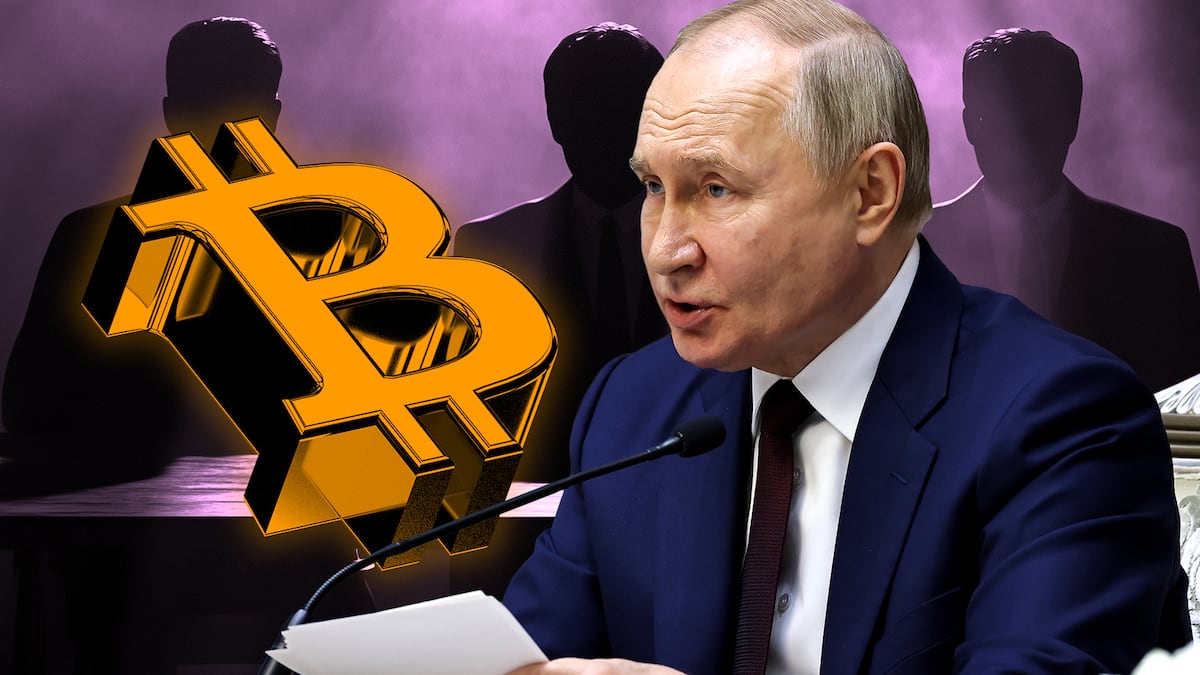- Vladimir Putin said nobody can control Bitcoin.
- Three other key players influenced the push to $100,000.
No sooner had Bitcoin broken through the $100,000 barrier on Wednesday that crypto experts were already setting their sights on the $200,000 price level.
The catalysts, experts say, point to President-elect Donald Trump’s promise to support the industry, which included the nomination this week of crypto ally Paul Atkins as SEC chair. Two other key factors are companies like MicroStrategy voraciously accumulating Bitcoin, and Federal Reserve Chair Jerome Powell’s stupefying change of mind.
But Noelle Acheson, author of the Crypto is Macro Now newsletter, said other big players helped drive the price higher amid a shift called the Overton window.
The “Overton window” refers to the range of ideas that can be reasonably discussed in public that mainstream officials and the general public are ready to entertain.
It’s also known as the window of discourse, and “we can say with certainty that, for Bitcoin, it is wide open,” said Acheson.
These four people were instrumental in helping to push Bitcoin’s price beyond $100,000.
Vladimir Putin
Russian President Vladimir Putin acknowledged that Bitcoin can’t be banned.
“Who can ban Bitcoin? Nobody,” he said at a panel on Wednesday.
Putin’s words are noteworthy to say the least, given his long history of banning things viewed as threats to his hold on power. He argued the weaponization of the US dollar was encouraging nation-states to consider diversifying with other global currencies — including cryptocurrencies.
Though Russia recently banned Bitcoin mining in low-energy regions, the country enacted a law regulating the activity and introduced a new tax regime in November.
It could be just a matter of time before Putin’s Russia, which has suffered the brunt of financial sanctions after its invasion of Ukraine in February 2022, announces its own Bitcoin reserve strategy.
Jerome Powell
Jerome Powell caused heads to turn on Wednesday when he spoke favourably of Bitcoin.
The Federal Reserve chief likened Bitcoin to gold and stressed that it was not a competitor to the US dollar.
“It’s like gold, only virtual,” he said at the New York Times DealBook conference.
Powell’s comments, which could impact the lingering regulatory blockage in Washington, DC, weren’t entirely positive, however. He doesn’t view the cryptocurrency as a store of value (a longtime selling point of Bitcoin backers), and he also cited the asset’s volatility.
Donald Trump
Trump is widely considered crypto’s sweetheart politician nowadays, and he knows it.
“CONGRATULATIONS BITCOINERS!!! $100,000!!! YOU’RE WELCOME!!!” he posted on his social media platform, Truth Social.
His keynote address in July at the Bitcoin 2024 conference in Nashville helped to trigger the current bull run, and he has followed that up since winning the US presidential election in November by nominating crypto-friendly figures to positions of business and regulatory power in his new administration. Optimism among Bitcoin supporters is now running higher than ever.
Trump nominated Atkins, a former commissioner under George W. Bush, to replace Gary Gensler as head of the Securities and Exchange Commission.
Atkins is considered crypto-friendly. In his announcement naming Atkins to the regulatory post, Trump said that his nominee recognizes that digital assets and other innovations are crucial.
Pro-crypto SEC commissioner Hester Peirce also vouched for Atkins. “I cannot think of a better person for the job,” she said on December 4.
Ken Griffin
Hedge fund Citadel founder and renowned crypto sceptic, Ken Griffin, rounds off our list.
Griffin, who back in 2018 criticised crypto for distracting from shares that drive economic growth and who once compared Bitcoin to the notorious example of the speculative trade in tulip bulbs in the 1600s, has changed his tune. Now, he says Americans want agency over their money, and crypto is a part of that.
“You have to remember an intangible asset like this is valued on intangible aspects,” Griffin said at the DealBook conference. “It’s about standing opposed to the power of the state. People take joy in that.”
Pedro Solimano is a Markets Correspondent for DL News based in Buenos Aires. Contact the author at psolimano@dlnews.com.


